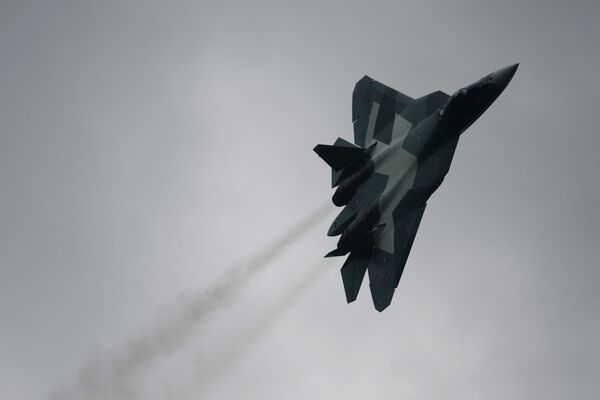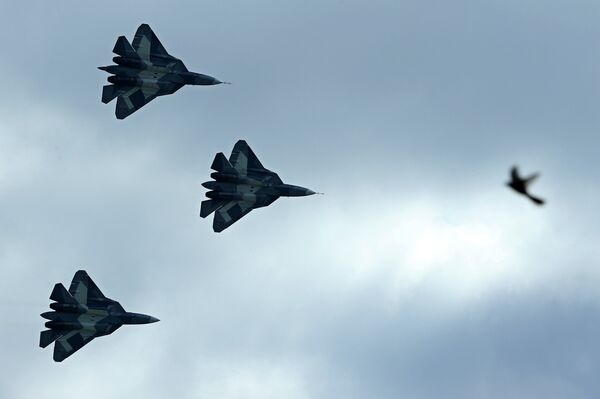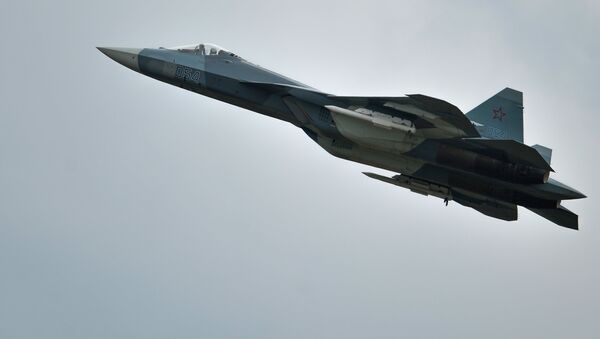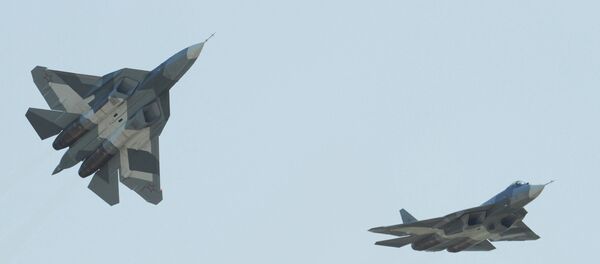Code-named Project 79L by the Indian Defense Ministry, the FGFA program came to life with an initial announcement on October 20, 2007, shortly after New Delhi and Moscow signed an agreement exempting the program from normal procurement rules, RCP added.
The project soon began to take form when India and Russia signed a collaborative preliminary design contract in December 2010, whereby each side put up $295 million toward finalizing the aircraft's basic configuration.
The preliminary design phase on Russia's nascent fifth-generation fighter, the PAK FA (Sukhoi T-50), was wrapped up in mid-2013, and the two countries are now discussing the structural elements of the future plane.
Defense News earlier reported that the companies had smoothed their differences over an increase in India's work share in the FGFA from the current level of less than 20 percent to 40 percent.

Russia also agreed to the Indian demand for a double-seat version of the new plane instead of the original, single-seat, option.
India is reportedly willing to include a firm order for 154 FGFAs in the draft agreement – a sop to Russian concerns regarding T-50 development and unit-production costs, as well as concrete assurance of an export order.
A finalized deal will enable Russia to more easily bear the costs of the expensive PAK FA development.
In addition, this will also provide its air force with a state-of-the-art stealth combat aircraft and its industry with the necessary momentum to maintain a level of technological equality with the US as it rolls out its second stealth fighter, the F-35, RCP wrote in conclusion.




